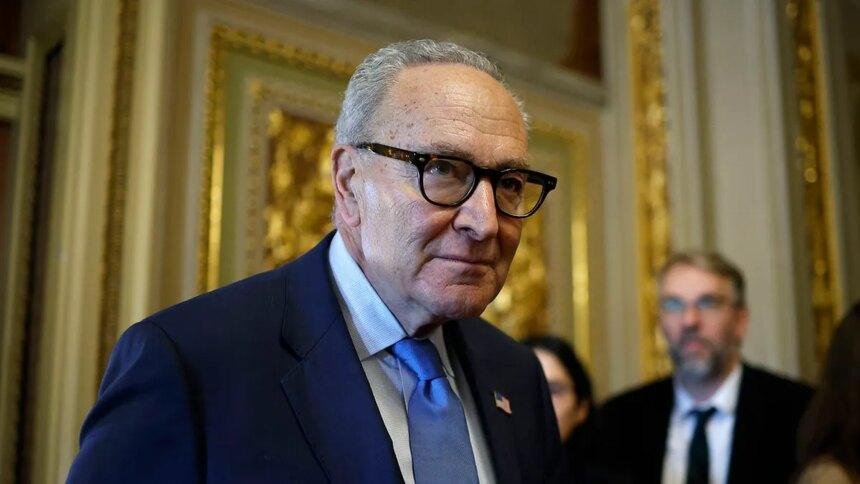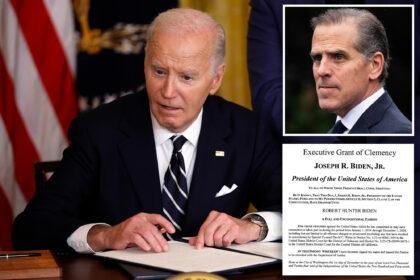Senate Stalemate: Government Shutdown Persists Amid Obamacare Subsidy Dispute
As the government shutdown enters its second week, Senate Democrats remain resolute in their opposition to a Republican proposal aimed at reopening federal operations. The impasse centers around the contentious issue of expiring Affordable Care Act (ACA) tax credits, commonly referred to as Obamacare subsidies. Senate Minority Leader Chuck Schumer (D-N.Y.) has made it clear that Democrats will not support any funding measures unless a deal is reached to extend these crucial subsidies, which are set to expire at the end of the year.
The Standoff: Key Players and Positions
Senate Majority Leader John Thune (R-S.D.) is in a precarious position, needing at least eight Democratic votes to pass a bill that would fund the government until November 21. However, the Democratic caucus is largely unified in its demand for a resolution on the ACA subsidies before any funding agreement can be made. Only a handful of senators, including John Fetterman (D-Pa.), Catherine Cortez Masto (D-Nev.), and Angus King (I-Maine), have shown willingness to break ranks with their party to end the shutdown.
The stakes are high, as both parties recognize the potential fallout from a prolonged shutdown. Schumer has emphasized that without action, millions of Americans who rely on these tax credits could face skyrocketing healthcare premiums. This concern echoes a broader narrative about the importance of healthcare access in American politics, a topic that has been contentious since the ACA’s inception in 2010.
Historical Context: The ACA and Its Impact
The Affordable Care Act was a landmark piece of legislation aimed at expanding healthcare coverage to millions of uninsured Americans. Since its passage, it has been a focal point of political debate, with Republicans consistently seeking to repeal or undermine it. The current standoff over the ACA subsidies is reminiscent of previous government shutdowns, where funding disputes often revolved around healthcare and social welfare programs.
In 2013, a similar situation arose when Republicans attempted to defund the ACA, leading to a 16-day government shutdown. The political landscape has shifted since then, but the underlying issues remain largely the same. The current debate highlights the ongoing struggle between the two parties over healthcare policy, a battleground that has significant implications for voters.
Negotiation Attempts: A Path Forward?
Both Senate leaders have called for discussions among their respective members to find a resolution. However, the lack of consensus on when and how to address the expiring subsidies complicates matters. Thune has indicated that while there may be a “mixed bag” of opinions within the Republican caucus regarding the subsidies, any potential agreement would require reforms to the ACA, which many Republicans view as fundamentally flawed.
Schumer has also pointed out the necessity of involving former President Donald Trump in any negotiations. He noted that House Speaker Mike Johnson and many House Republicans are opposed to extending the ACA subsidies, making Trump’s endorsement crucial for any bipartisan agreement. “We need the president to be involved,” Schumer stated, underscoring the complexities of modern legislative negotiations where party loyalty often hinges on the influence of key figures.
The Role of Trump: A Complicated Legacy
Trump’s involvement in the current negotiations adds another layer of complexity. While he has expressed a willingness to work with Democrats on healthcare issues, his past actions have often undermined bipartisan efforts. For instance, a bipartisan border deal negotiated in 2023 was reportedly derailed by Trump’s intervention, even though he was no longer in office.
Fetterman has pointed out the challenges of negotiating without Trump’s support, stating, “Ultimately, doesn’t he have to sign off on any of it anyway?” This sentiment reflects a broader concern among lawmakers about the influence of party leaders and former presidents on legislative outcomes.
The Public’s Reaction: Implications for Voters
As the shutdown drags on, public sentiment is likely to play a significant role in shaping the political landscape. Voters are increasingly frustrated with the inability of lawmakers to reach a compromise, particularly on issues as critical as healthcare. Polls indicate that a majority of Americans support extending the ACA subsidies, viewing them as essential for maintaining affordable healthcare access.
The ongoing stalemate may have repercussions for both parties in the upcoming elections. Democrats risk alienating voters who rely on these subsidies, while Republicans may face backlash for their perceived intransigence. The political ramifications of the shutdown could extend beyond immediate funding concerns, influencing voter behavior in the 2024 elections.
Conclusion: A Call for Compromise
As the Senate remains gridlocked over the ACA subsidies, the urgency for a resolution grows. Both parties must recognize the importance of compromise in addressing the needs of millions of Americans who depend on affordable healthcare. The current standoff serves as a reminder of the complexities of governance in a polarized political environment, where the stakes are high, and the consequences of inaction are felt by everyday citizens.
In the coming days, it will be crucial for Senate leaders to engage in meaningful dialogue and seek common ground. The future of the government-and the healthcare of millions-hangs in the balance.











